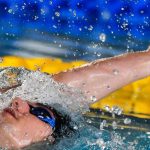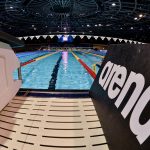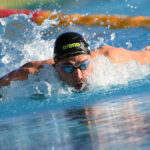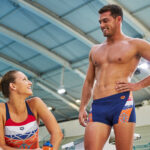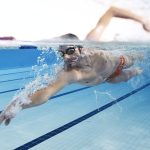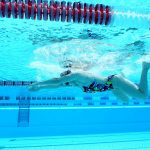Swimming, advice for beginners!
Have you decided to sign up for the first time at the pool? Do you intend to take a class and maybe even beat your fear of water? The reasons why you decide to go to the pool can vary, but there are a lot of information and tips that are important to keep in mind if you are a first-time swimmer and are not familiar with pools and swimlanes.
Let’s make sure we’re healthy before we swim
First, before signing up for the swimming course, you must get a physical fitness certificate, mandatory for all non-competitive sports activities. Obtaining it is very simple; you only need to undergo a medical examination that will evaluate, according to criteria and parameters, your suitability for this activity, with any orthopaedic requirements in the presence of particular disorders.
In short, even if swimming is one of the most complete and suitable sports for everyone, in some cases, you have to be careful, especially if you have back problems. Not only that, even pregnant women with hypertension or cardiovascular problems, those who have had previous episodes of a heart attack and those with diabetes and high cholesterol levels should follow the advice of their doctor carefully.
Once you find out that you are eligible for this activity, you will be able to benefit from it, even as a beginner. In fact, swimming, among its many strengths, improves circulation, stimulates coordination and balance and keeps you fit. The most stimulated muscles, from the very first workouts, are abdominal, leg and back muscles.
What are the main obstacles encountered by beginners?
Although it’s easier to learn how to swim as a child, even adult learning has its advantages. In fact, motor skills are already well developed and adults more likely than children to learn new things and get involved. There are very useful tools, especially in the early stages, such as the kick board, that will give us security if we are not yet afloat with ease.
Also palettes, fins and pull buoys are great allies to acquire the technique and perfect it from time to time. It’s important to do some stretching before you start, especially if your muscles are “cold” and have been at rest for a long time.
Resistance and speed are the major enemies for beginners. As the technique is refined and styles are learned these two factors increase, but it is always important to be followed by a good instructor.
Some practical tips
Pay attention to breathing, which in addition to allowing you to swim with less effort, will allow you to adopt greater safety in the water. Follow the instructor’s directions. Be constant in the training sessions, so you don’t forget the preliminary knowledge.
If there is something that doesn’t suit you or scares you, tell the instructor immediately and stop training until you have calmed down. Do not aim to attain tremendous results: everyone has his learning pace, and goals that are too ambitious could lead to anxiety and frustration. Enjoy every little progress and share it with your workout companions and people close to you.
Are you also just beginning? What are the main difficulties you have encountered?
Tell us about your experience!
